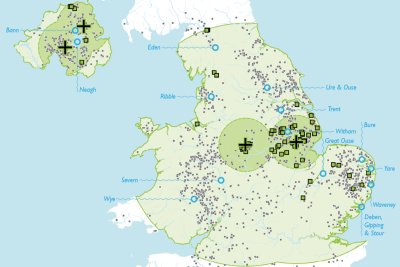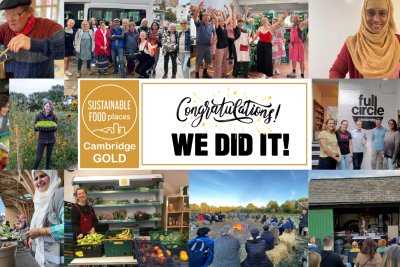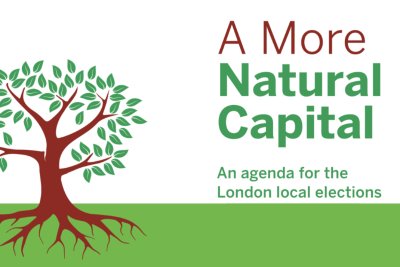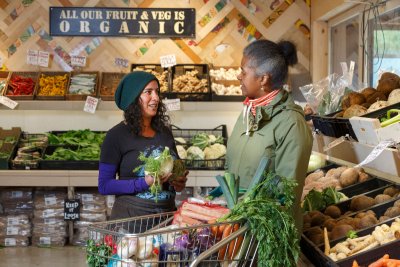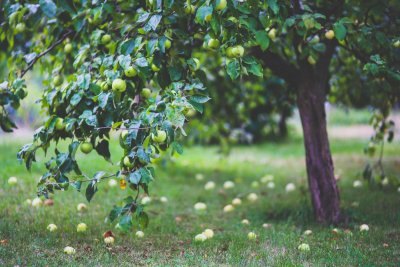Mayor of London’s Environment Committee recommend action to improve food resilience
In February 2024, food and farming experts gave evidence to the Mayor of London's Environment Committee on food supply challenges in London. They highlighted missed opportunities for accessing land for food growing, and for increasing climate-friendly food via the school meals programme funded by the Mayor of London.
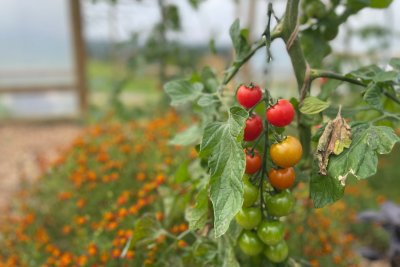
The cross-party Environment Committee received evidence from six food and farming experts, including Sustain, covering food security, food growing, nature recovery, public sector procurement as well as the strategic opportunities across London. The committee made five recommendations to the Mayor of London (see below), with a response requested by 31 May 2024.
The panel included Sarah Williams from Sustain; Nick von Westenholtz from the National Farmers Union; BBC Radio 4 food journalist Sheila Dillon; Chair of the London Food Board Claire Pritchard; Mark Ainsbury from the food team of the Greater London Authority (GLA); and Brian Kelly, from the leading community food organisation OrganicLea based in Waltham Forest. They opened the discussion responding to a question on resilience and supply chains, and explained the current challenges of our complex food system, reliant on the just-in-time supermarket model, lacking accountability for environmental impact of the food in the supply chain and often pushing farmers to the brink.
Claire Pritchard, Chair of the London Food Board, commented:
“The key is lessening our reliance on supermarkets because they are in the ‘getting independents. You have to think about what you can do for local food hubs and what you can do for local independents, making it more attractive to people to invest and to be part of those structures.”
The panel also gave London Assembly members a plethora of examples of good practice in London, such as OrganicLea, a local food cooperative based in the Lea Valley, which employs between 25 to 30 people per year on 12 acres of local authority land with a turnover of £1.5 million.
They were also told about the work of the veg box pioneers Growing Communities, who have gone on to set up a farmer-focused wholesaler, Better Food Shed – a critical piece of infrastrucuture in terms of building resilient food supply. They also heard that unfortunately this not-for-profit social enterprise has struggled to get council or public sector support of investment despite the importance of their work.
Claire Pritchard and Sarah Williams both highlighted the importance of levering the millions of pounds being spent on universal free school meals for London's primary school children.
“If Universal Free School Meals was a factory on the hill, everyone would be knocking on the door and going to visit it. It is 1,000 people in every borough working in an industry. It is such an opportunity.”
After hearing evidence on a range of topics the committee have made five recommendations relating to:
- Creating an action plan to improve resilience of the food system
- Increasing resources for food growing
- Making better links between food growing and the nature recovery programme
- Renewing the London-wide commitment to food issues through resources for the food strategy, its implementation and the GLA food team
- Improving London's Universal Free School Meals programme so it can deliver on nature and climate friendly food commitments and require London's councils to use the power of their procurement to help drive London-wide priorities
Full wording of the recommendations below and the full letter is available.
Recommendation 1: The Mayor should publish an action plan by September 2024 at the latest, setting out how the GLA will take steps to improve the resilience of London’s food system, including addressing the recommendations of the 2022 Oxford University report.
Recommendation 2: The Mayor should allocate an increase in its funding to the Capital Growth programme to:
- Allow it to employ 2 full-time staff, instead of 2 part-time, as currently;
- Develop an accurate, in-depth database of food growing projects and allotments in London and opportunities to expand these; and
- Support an increase in food growing through Capital Growth projects.
Recommendation 3: In developing the Local Nature Recovery Strategy, the GLA should ensure that opportunities to strengthen and expand food growing, including in allotments and community gardens, are mapped and widely discussed. This would help strengthen the evidence base for food growing to feature more strongly in any updated London Environment Strategy and London Plan.
Recommendation 4: The Mayor should increase the number of staff on the GLA Food Team to support the Food Board, Sustain and delivery of the Food Strategy and Implementation Plan.
Recommendation 5: The Mayor should explore how the Universal Free School Meals programme can connect schools with food growing projects in London as well as the role the programme can play in leveraging procurement strategies that benefit locally produced and sustainable food.
Sustain and the London Food Board will follow up on the progress once the 2024 Mayoral Elections are complete.
Published Friday 5 April 2024
Capital Growth: We believe everyone should have the opportunity to grow food as part of a healthy, resilient food system and we are working with our network of growers in London to make this happen.
